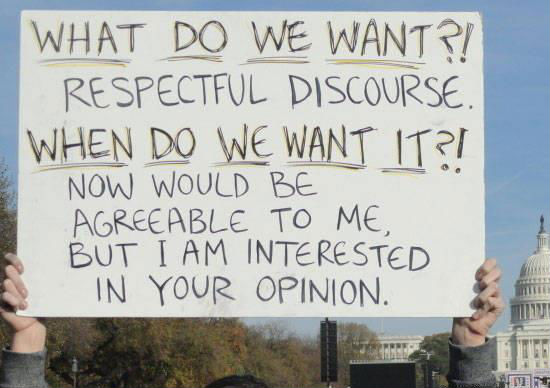Lately I have fallen into Octavia E. Butler’s dimension, and it is a mind-exploding place to be. Her novel Kindred is about a young black woman named Dana who mysteriously disappears from her own world — 1976 Los Angeles — and finds herself in Antebellum Maryland.
After this happens a few times, she figures out that she goes back every time a white boy named Rufus lands in a life-threatening situation. She also figures out that Rufus is her ancestor, so she needs to keep him alive until he’s fathered the child that will keep the chain going from him down to her.
Told from Dana’s perspective, the book is vivid and haunting and terrifying and even funny, full of descriptions that bring the reader directly into her experience and her thoughts about that experience. We see how her modern ideals conflict with the reality of her 1800s situation, and we see how that conflict wears her down over time.
And here’s what the conflict boils down to — who gets to say who she is?
In 1976, Dana gets to say who she is, at least to a certain extent — she’s strong, intelligent, capable, a young writer free to think or say or do whatever she likes.
But in 1818, her ideas about who she is are overwhelmed by everyone else’s ideas of who she is. Everyone else sees her blackness and thinks “slave.” They see her femaleness, too, and they think “for my use.”
It doesn’t matter that there are no papers showing that she has ever been bought or sold. It doesn’t matter what she says, it doesn’t matter that she knows about Black Power, and it doesn’t matter that she’s wearing pants. She is a black woman, so she must be a slave. There’s no room in their minds for her to be anything else.
Not having been raised to see herself as a slave, sometimes she forgets. She looks at white people too directly, challenges men too easily. But over time, after repeated beatings and humiliations, the conflict wears her down. As the book progresses, she finds it harder and harder to internally resist sliding into the subservient role. In the overwhelming pressure of what the world thinks she is, she struggles to hold on to her idea of who she thinks she is.
This, to me, is the most exquisite and painful part of the story, because it shows exactly how oppression twists the souls of those who suffer it.
***
I say this not from some intellectual position outside of this phenomenon. Though clearly I have never experienced anything like those who suffered through slavery, my soul has been twisted, too. To hate my imperfect body, to believe in the impossibility that I will ever truly be okay, even to allow others to take brutal advantage of me simply because one shouldn’t raise a fuss.
But at the same time, I have to acknowledge that I am in possession of more physical, cultural, and emotional freedom than any of my ancestors ever had. I have been shaped by my culture, there’s no denying it — but I also have many opportunities to shape my culture back. I have the ability to examine and reject the criteria my culture has set for success. I have the freedom to make myself better.
And these two opposing forces are at play in and around all of us. Cultural pressure to conform presses from the outside, and the soul’s inherent desire for freedom strains from the inside. The inertia of the past presses up against the call of the future, like tectonic plates shifting, and the interplay between these two is called history.
But it moves slowly, because the gravity of the past is IMMENSE. The most fucked up ideas of the past have been blunted a bit, for sure — we don’t have slavery anymore, we don’t have women being owned by their fathers or husbands. But we don’t have to look far to see those old ideas still in action today: the racist brutality in Ferguson and all over the country … the casual attitude toward rape and domestic violence … the notion that wealth means you are a good person and poverty means you’re a bad lazy one who deserves no help.
Culture if not law is still trying to dictate who each of us is. And to be limited like this, to be categorized like objects, to be denied the most basic human right of deciding for oneself who you are — it’s a soul-level injury. And it creates a fundamental conflict between individuals and the society they live in.
Personally? There’s nothing that pisses me off more. When black people are repeatedly beaten and imprisoned and murdered by the state, when women’s access to healthcare is systematically removed piece by piece, when the powerful willfully refuse to acknowledge the experiences of the powerless, my response is 100% incandescent rage. Who do these assholes think they ARE? And how do they get away with it, even for a minute, when there are so many more of us than there are of them?
This is one of the brilliant things about Kindred — it explains that mystery. We can even watch as it happens to Dana, page by page. If you stick around in a culture that wants to limit you for long enough, that shit is going to seep into your brain, too.
***
And that’s where we are now. A lot of the heinous, racist, sexist awfulness our culture was built upon has seeped into our brains. It still dictates some portion of our internal monologue and our external behavior. It still governs a lot of how we see ourselves, and how we see each other.
But the tectonic plates are sliding, and I believe we are coming to a tipping point in history. Think about it — millions of us now possess the education and resources to see the world from a very broad perspective. Millions of us understand that any perspective worth anything must include other perspectives, too. So millions of us already have everything we need to shift ourselves and our culture in a significant way.
Like, we already have the ability to evaluating ourselves and each other based on old-ass criteria.
We already have the ability to step back from the blur of suck-you-dry hypercapitalism and decide what we believe is important.
We already have the ability to refuse to allow the limitations of the past to dictate our personal and collective futures.
We simply need to claim these freedoms — all of them, and as many more as we can get our hands on. And then we need use them. Use them up. Use them till the wheels fall off.
This is what Dana does in Kindred. Everyone and everything pushes in on her, demanding her surrender. But the force rising out of her is stronger. She holds on to who she is. She fights for who she is. She uses every tool at her disposal to hold on to who she deeply knows she is.
And I can’t help but thing that this is exactly what the people of Ferguson have been doing, too — claiming and exercising the freedom they have on the books but not in reality. Rejecting the old idea that their role is to placidly accept murder and injustice and humiliation. Standing fast to what they know is right about what human beings are worth.
And we see the same thing happening in this year’s discussions about rape culture as it still exists in 2014 — women claiming the freedom to tell the truth about their experiences, even if others would rather not hear. Rejecting the idea that men are ever entitled to women’s bodies. Standing fast to what they know is right about what human beings are worth.
And on a much smaller scale, there are untold numbers of people claiming the freedom to say what they really think, and to have happy thoughts about their bodies even if they are fat or otherwise imperfect, and to define a sense of life’s meaning that has more to do with nature and relationships and less to do with consumerism and Kardashianism.
There really are millions of us, all over the place, popping out of the patterns we were raised in. Claiming and exercising our right to decide who we are, and then be that, regardless of what the world thinks.
It’s a beautiful, breathtaking thing to behold, and it’s also important. Because exercising freedom is how we increase it. It’s how we shake off limitations, create more options, and shift the tectonic plate of history in the right direction.
Dana didn’t live in a perfect world, even in 1976, and neither do we. But it’s a damn sight better than 1818, or 1890, or 1940. And if the brave folks who came before us were able to find a way to claim their freedoms and push history forward, even in those wildly oppressive times, then we can certainly find a way to do it now.
It’s not easy, but it is possible … and there is the realest kind of power in it.
photo by Dave Townsend // cc
























